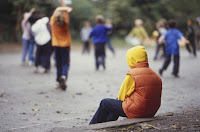COMMENTS & QUESTIONS [for May, 2016]
Do you need some assistance in parenting your Aspergers or HFA child? Click here to use Mark Hutten, M.A. as your personal parent coach. ~~~~~~~~~~~~~~~~~~~~~~~~~~~~~~~~~ Mark, You are a clever man. You're saving thousands of parents and their children. I just want you to know you're immensely humanitarian and I'm so very grateful to you and the Internet for finding you. After all these years I've only just discovered my son is probably Aspergers but have just thought he's always been a bit awkward and contrary. I never considered he might be wired differently to other children (though he's certainly different to my younger sons). He would hate labels in his clothes as a toddler, would fight other children causing me to avoid socialising with him, going in car seats, getting his hair cut at the barbers etc but he got through school and worked hard despite OCD tendencies and never had behavioural problems at school. He just seemed to lose all motivation a


